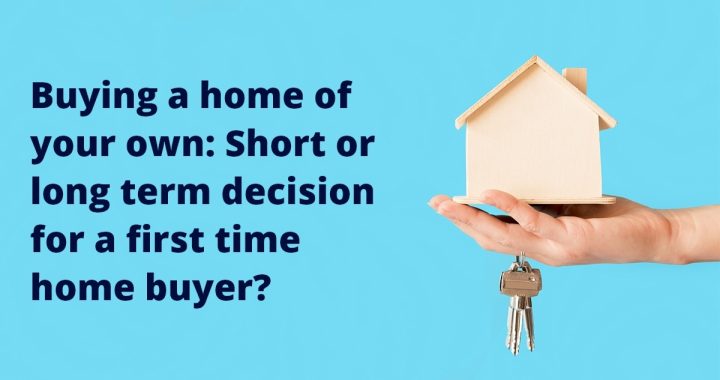One of the top concerns for renters who want to buy homes becomes how to save for down payment. This might seem like a mammoth task, but if you plan well, do your research and break it down into easy to follow steps, you can do it. We’ve listed down a few key saving tips to help young renters who are looking to buy their own homes.
Step 1: Define your home down payment savings goal
As renters, it is important before you start saving, to define how much exactly you are going to save. In most cases, it is wise to consider the home down payment to be 15% (though it can range from 5% to 20%). Then you must consider the following crucial questions.
- How long should I save for down payment?
- How long will it take me to save for that down payment?
- Where is the best place to invest my money in to save for the down payment?
Where is the best place to invest my money in to save for the down payment? You could save for this by opening a high yield savings account. It would be better to set up an automatic transfer process so every month, money is deducted from your salary account towards the account for your home savings. Building a corpus of savings for yourself straight out of the gate, in your early years as a professional, is also a good idea. High return investments like equity can provide an avenue for savings. You could also take a loan against a life insurance policy to raise the requisite funds.
Step 2: Cut down major expenses
Once you have a good idea of how much you need to save, make sure you are cutting down on your spending. To this end you could enforce the following suggestions:
- You may want to celebrate that special occasion at home
- Save by spending less on clothes
- Save by deferring that expensive holiday destination you wanted to go to and look for budget or backpacking options, both of which are fun experiences
- Cut down on ordering food online and eat wholesome homemade food, which is healthier too.
- Prioritise your future home over other expenses such as electronics, cars, etc.
Step 3: Pause on your retirement savings for a while
This might seem a bit risky but when you come to think of it, a home is an investment towards your retirement anyway. When you want to speed towards your home down payment goal, it is wiser to make sure that you have no other savings goals. So pausing your retirement savings for a few years will help you make sure you are able to save for the down payment faster.
Step 4: Plan your taxes wisely and avail the benefits of government programs
Tax planning is a very important stage on your home down payment journey. There are various tax exemptions you can avail of under 80 C and 80 D which will help you get several tax breaks if you use them well. In addition, you should make sure that your tax saving plan complements your financial plan.
Government-backed incentives like Pradhan Mantri Awas Yojana for home loans is also very helpful to homebuyers, so doing your research in this regard is also important. Under the scheme, the government will provide an interest subsidy of 3% to 4.5% on the home loan amount depending on the income group one belongs to. There are also housing assistance programs in every state through which people in the lower and mid-income bracket can claim assistance. So definitely scour your options as you plan.
Step 5: Look for home down payment assistance programs
Home down payment assistance programs are a boon for renters looking to become homebuyers. This is something that professionals and young home buyers will take to, especially if they are digital solutions. HomeCapital is India’s first home down payment assistance program. The program helps first time home buyers with up to 50% of the down payment through an interest-free unsecured loan. The HomeCapital Program helps to fast track homeownership.
As, you can see, the way forward to homebuying from renting is to plan, research, and explore your options. You’ll definitely be able to succeed once you follow these simple steps!









